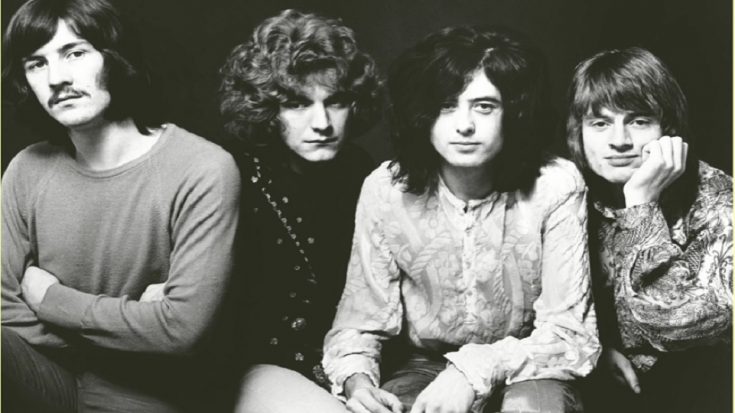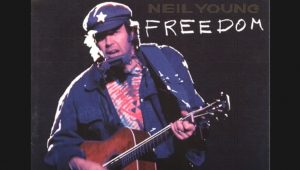7 Classic Rock Bands That We Didn’t Expect to Break Up Too Soon

via The Beat Goes On / YouTube
Classic rock has borne witness to the rise and fall of countless iconic bands. Yet, among this hallowed lineage, there exists a select group of rock icons whose abrupt disbandments sent shockwaves through the music industry and left legions of devoted fans yearning for more.
In this captivating journey through the annals of rock history, we embark on a quest to unravel the enigmatic stories of seven classic rock bands who, for an array of compelling reasons, chose to bid adieu much sooner than the world was ready to bid them farewell.
These bands were more than creators of legacies that continue to rock the world; they were architects of cultural movements, crafting anthems that echoed in the hearts and minds of fans across generations.
1. The Jimi Hendrix Experience
Jimi Hendrix’s guitar virtuosity and innovative music mesmerized the world and his band, The Jimi Hendrix Experience, seemed unstoppable. However, Hendrix’s sudden death in 1970 marked the end of the group. Hendrix’s influence on guitarists and rock music remains profound, and his short-lived experience left a mark that has yet to fade.
The guitar virtuoso’s journey from the London club scene to Woodstock was a testament to his unrivaled talent and innovation. He and his band redefined the possibilities of the electric guitar and the boundaries of rock and psychedelic music. Hendrix’s iconic performances at Monterey Pop and the Isle of Wight Festival showcased his unparalleled stage presence and musicianship.
The sudden loss of Jimi Hendrix left the music world in shock, and the question of what more he could have achieved remains a topic of speculation and reverence. Hendrix’s influence on guitarists across generations is immeasurable, and his music continues to be celebrated as a cornerstone of rock history.
2. Cream
Cream, the short-lived supergroup consisting of Eric Clapton, Jack Bruce, and Ginger Baker, created a blues-rock revolution. But in 1968, just two years into their journey, the collective that left one of the biggest what-ifs in music disbanded.
Each member’s solo career continued to shine, but the power of Cream was unique and remains influential. Cream’s fusion of blues, rock, and psychedelia marked a defining moment in music history. Their albums, such as Disraeli Gears, showcased innovative songwriting and virtuosic performances.
However, the band’s internal tensions and the contrasting personalities of its members proved to be its undoing. Despite their short-lived existence, Cream’s impact on the rock genre was profound. Clapton’s guitar work, in particular, set new standards for blues rock, and the band’s live performances, such as the farewell concert at the Royal Albert Hall, remain legendary.
3. Eagles
The Eagles were riding high on the success of Hotel California when they suddenly disbanded in 1980 after one more album together. Their harmonious blend of rock and country had once dominated the airwaves.
The country rock icons’ impact on the rock and country genres remains legendary, and their reunions have been celebrated events. The Eagles’ journey from their self-titled debut to The Long Run was marked by a string of hits that defined the 1970s. Their harmonies and evocative lyrics resonated with fans, making them one of the bestselling bands of all time.
However, the band’s journey was far from smooth, with internal tensions and changes in lineup impacting their dynamic. While their 1980 breakup left fans disappointed, the Eagles’ music continued to be a cornerstone of classic rock radio. Their reunion in the 1990s and subsequent tours provided a sense of closure and celebration for fans who had longed to see the band back together.
4. Pink Floyd
Pink Floyd’s progressive and psychedelic imprint remains gigantic in music history, although their classic lineup’s end came in 1985 with Roger Waters’ departure. This abrupt change shocked fans and shifted the band’s dynamics, ultimately affecting their sound.
Despite the changes, Pink Floyd’s music continues to resonate with fans worldwide. The band’s conceptual albums and groundbreaking live performances remain unparalleled in the world of rock. Pink Floyd’s journey from The Piper at the Gates of Dawn to The Wall was marked by sonic experimentation, complex narratives, and extraordinary stage productions.
The band’s ability to create sonic landscapes that challenged the norms of rock music was nothing short of revolutionary. Their albums, often dealing with themes of alienation, conflict, and the human condition, struck a chord with listeners. Even after Roger Waters’ departure, guitarist David Gilmour continued to lead Pink Floyd into new musical territory. The band’s live performances, such as “Pulse” at Earl’s Court, showcased their mastery of both sound and visual artistry.
3. Police
The late 1970s and early 1980s were defined by the distinctive sound of new-wave trio The Police. Hit albums like Ghost in the Machine and Synchronicity had fans craving more of the band’s unique blend of rock and reggae. However, in 1984, the world was taken by surprise as The Police disbanded, marking the end of an era.
While Sting’s solo career soared to new heights, the void left by The Police was never quite filled. The magic of the band, known for their iconic hits like “Every Breath You Take”, remained unmatched in the world of music. The Police’s influence extended far beyond their chart-topping songs; they played a significant role in shaping the new wave and post-punk genres, infusing these styles with their signature sound.
The band’s ability to seamlessly blend rock, reggae, and punk elements made them a musical force to be reckoned with. Their innovative music videos, particularly for “Every Breath You Take” and “Don’t Stand So Close to Me”, set new standards in visual storytelling within the music industry. The Police’s songs, often characterized by introspective lyrics and memorable melodies, have stood the test of time and continue to captivate audiences.
2. Led Zeppelin
Led Zeppelin’s explosive blend of rock and blues had the music world enthralled. Their groundbreaking albums, like Led Zeppelin IV, and legendary live performances had fans convinced they were invincible.
Yet, in 1980, the band’s world was shattered by the tragic death of their drummer, John Bonham. Grief and uncertainty led to Led Zeppelin’s decision to disband, leaving fans devastated. The band’s impact on rock and their timeless classics continue to resonate through the ages.
The era of Led Zeppelin was marked by groundbreaking guitar riffs, thundering drums, and the mystique of Robert Plant’s vocals. Led Zeppelin’s albums, often shrouded in iconic artwork, were immersive experiences, pushing the boundaries of what rock could achieve. Despite their relatively short career, the discography they left was undeniably one of hard rock’s greatest, and their reunion performances in the late 2000s rekindled the magic for a new generation of fans.
1. Beatles
Of course, the Fab Four will always remain as one of the greatest bands music fans never wanted to break up. But they did, and it was one unforgettable sad affair.
In the late 1960s, the world was in the grip of Beatlemania, with The Beatles at the zenith of their career. The band’s journey from the Cavern Club to Shea Stadium was a global phenomenon. Yet, behind the scenes, internal disagreements and creative differences began to take their toll, and they broke up in 1970.
The Beatles’ influence on rock music, however, remains unparalleled, and their legacy endures. Their music continues to be celebrated by generations, and their impact on pop culture is immeasurable. The band introduced innovative recording techniques, experimented with different musical styles, and pushed the boundaries of what was possible in a studio.
Their lyrics evolved from straightforward love songs to thought-provoking, poetic masterpieces. The band’s influence on fashion, culture, and the very fabric of society during the ’60s is a testament to their significance. Despite the challenges that led to their unexpected breakup, The Beatles’ music remains a timeless and cherished part of rock history.











